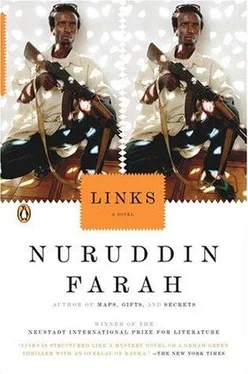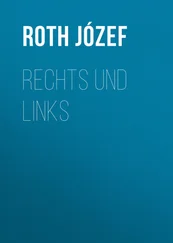“Why the nickname ‘Marabou’?” Jeebleh asked.
“Somebody has been telling you things.”
“And why ‘Funeral with a Difference’?”
Af-Laawe said, “I started the funeral service when sorrow felt like something emitting a bad odor that was forever there, as though it had been smeared on the inside of my nostrils. After the mosques were raided and the women seeking refuge in God’s house taken out and raped, I set up an NGO to take care of the dead.”
“Where did you get the funds to set it up?”
“I raised them myself,” he said.
Was Af-Laawe, as he told it, a lone do-gooder in the style of the folk heroes one read about as a child? Jeebleh wondered what good a single person could do in a place where the bad outnumbered the virtuous. Maybe one must do what one can, the best one can.
Af-Laawe continued, “At least I am in the privileged position of choosing what I want to do and how I go about it. Not everyone is in this position.”
Who was he, really — a troubleshooter on a fat salary from the EU; a bigtime swindler, with a heist stashed away in a Swiss bank; a do-gooder with an NGO to bury the unclaimed dead; a house-sitter looking after the property of a family who had fled?
“Speaking of choices,” Jeebleh said, after a long silence, “did the members of the clan families who fled the city choose to flee, or were they forced to abandon their properties in a city they adored?”
“These are abnormal times!”
“I can see that,” Jeebleh said, and looked at the vultures holding a conference a few meters from where they were seated.
The traces of a wicked grin formed around Af-Laawe’s drawn-in lips. He noticed Jeebleh’s gaze. “A cynic I know says that thanks to the vultures, the marabous, and the hawks, we have no fear of diseases spreading,” he said. “They clean things up, don’t they? My cynical friend suggests that when the country is reconstituted as a functioning state, we should have a vulture as our national symbol.”
“You wouldn’t be that cynic yourself?” Jeebleh asked.
Af-Laawe stonewalled again: “These are abnormal times.”
“I would agree it’s abnormal to see scavengers of carrion at a four-star hotel, looking as though they are well placed to choose what they eat and where they go. They look better fed than humans.”
It puzzled Jeebleh to see that Af-Laawe was upset. Had he said something to offend him? Now his drawn-in lips moved, like a baby fish feeding.
“There were far more vultures and marabous in the aftermath of the October-third debacle, when over a thousand supporters of StrongmanSouth were massacred, and eighteen U.S. soldiers lost their lives. I bore witness to the arrival of these scavengers, gathered around the battle zone, and perched on the lookout points in the neighborhood.”
The words were spoken like an attack. Did Af-Laawe think that Jeebleh, as an American, would be upset if he mentioned the U.S. dead in Mogadiscio in the same breath as sighting scavengers gathering at the battle zone? Because Jeebleh assumed that Af-Laawe’s badness was emerging, he prepared for an attack, and waited. He was getting to know Af-Laawe a little better at least.
Af-Laawe went on, still in attack mode. “On the fourth of October, there were as many carrion-eaters as there were human beings come to witness the massacre. But the birds had no chance to get at the corpses of the Somali dead, since these were taken away and buried by their families. A discerning person, like my cynical friend, would’ve seen two marabou storks, weighing no less than twenty kilograms each, discreetly following the progress of the riotous mob dragging the corpse of an American Ranger down the dusty alleyways of the city. The marabous followed the mob, and my friend tells me that their bare heads and bare necks were in clear view. Maybe they expected the crowd to abandon the corpse of the American at some point, so they might pounce on it. The hawks hung back, remaining at a distance. They didn’t want to get into direct conflict with the marabous.”
Jeebleh, listening to Af-Laawe, realized that he himself was infested with more venom toward Caloosha and anyone associated with him than he had thought possible, despite his years of exile.
“Do you wish to know the name of the cynic I was with?” Af-Laawe said. When Jeebleh nodded, he asked, “Have you ever met Faahiye?”
“I know Raasta’s father,” Jeebleh said.
“He’s the cynic I was with on the fourth of October.”
Jeebleh was relieved that they had changed the subject when they did, even though he doubted very much that Faahiye had said any of the terrible things ascribed to him. “Where is Faahiye?” he asked.
“A cynic, who’s angry at the world,” Af-Laawe said.
“No stonewalling. Where is he?”
“Faahiye hates being an appendage.”
“An appendage of whom?”
“Faahiye looks forward to the day when he is his own man, not an appendage,” Af-Laawe explained, “not to be referred to as Raasta’s father, or as Bile’s brother-in-law.”
“Where is he?”
“He was headed for a refugee camp on the outskirts of Mombasa when I last heard about him,” Af-Laawe said. “They say he was thin, as we all are, and the worse for wear, as we all are.” After a pause he added, “He was troubled like a rutting he-dog, not knowing what to do, where to turn, because he is terribly excited.” Pleased with his private joke, Af-Laawe graced his lips with a grin. Jeebleh waited, expecting Af-Laawe’s exculpatory defense of his own behavior, after he had been accused of such insensitivity, but Af-Laawe did no such thing.
Now, why did the story about the marabou storks following the progress of the American Ranger disturb Jeebleh so? Before he had time to answer, a bellboy called him to the telephone. He asked who it was who wanted him on the phone, expecting it to be Bile. The boy said, “The name sounds like Baaja — I don’t know.”
Af-Laawe stepped in helpfully. “He means Dajaal.”
“Who’s Dajaal?”
“Bile’s man Friday.”
Jeebleh got to his feet, hurting and clumsy, and nearly toppled the plastic table. “Sorry!” he said, with guilt on his face, and he rushed off, passing the gathering of the carrion birds, their presence of no apparent concern to him.
On the phone, Dajaal said he would come shortly to take him to Bile.
THE ROADS MOVED: NOW FAST, NOW SLOW.
From where he sat in the back of the car, Jeebleh saw vultures everywhere he turned: in the sky and among the clouds, in the trees, of which there were many, and on top of buildings. There were a host of other carrion-feeders too, marabous, and a handful of crows. Death was on his mind, subtly and perilously courting his interest, tempting him.
He remembered with renewed shock how he and Af-Laawe had come to their falling-out earlier. Perhaps he wasn’t as exempt as he had believed from the contagion that was of a piece with civil wars as he had believed; perhaps he was beginning to catch the madness from the food he had eaten, the water he had drunk, the company he had kept. He doubted that he would knowingly take an active part in the commission of a crime, even if he were open to being convinced that society would benefit from ridding itself of vermin. He knew he was capable of pulling the trigger if it came to that. His hand went to his shirt pocket, where he had his cash and his U.S. passport. He meant to leave these in Bile’s apartment, where they would be safer than in his toiletry bag.
Dajaal was in front beside the driver, and Jeebleh had the back to himself. The ride was bumpy, because of the deep ruts in the road. In fact there wasn’t much of a road to speak of, and the car slowed every now and then, at times stopping altogether, as the driver avoided dropping into potholes as deep as trenches.
Читать дальше












